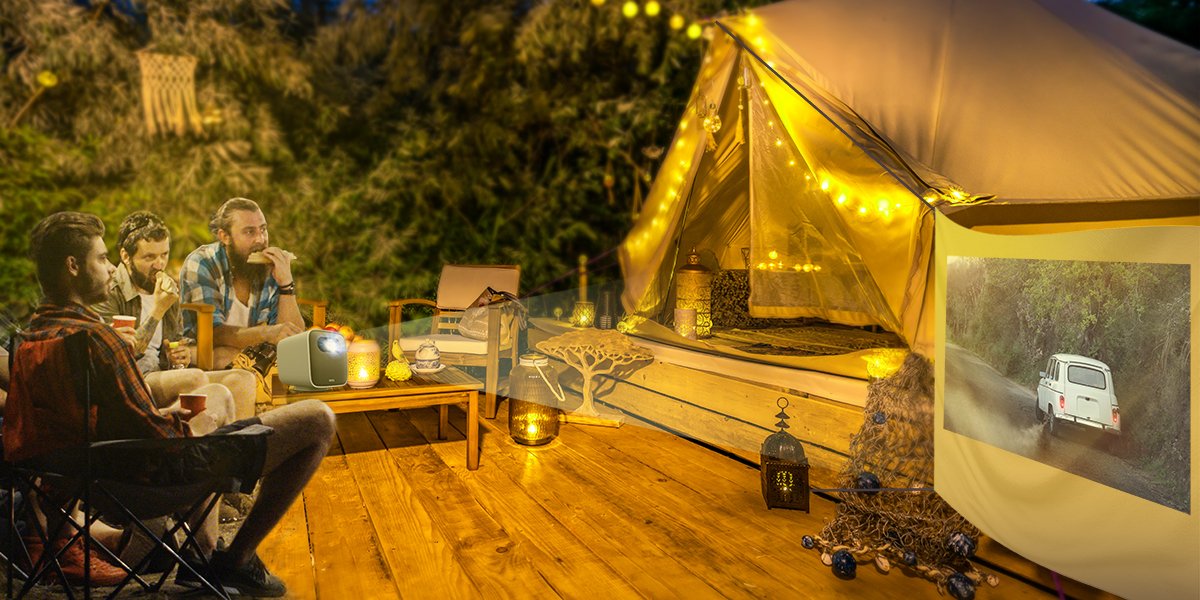Introduction
Camping is a wonderful way to connect with nature and experience the great outdoors. However, the idea of spending nights in a tent without any relief from the summer heat can be daunting for many. That’s where camping with air conditioning comes in. In this article, we will explore the concept of camping with air conditioning and how it can enhance your outdoor experience. Whether you’re a seasoned camper or new to the world of camping, this article will provide you with all the information you need to stay cool and comfortable during your camping adventures.
Table of Contents
- What is Camping with Air Conditioning?
- Benefits of Camping with Air Conditioning
- Types of Air Conditioning Systems for Camping
- How to Choose the Right Air Conditioning System for Your Camping Needs
- Setting Up Your Air Conditioning System at the Campsite
- Tips for Maintaining and Operating Your Camping Air Conditioning System
- Frequently Asked Questions (FAQs)
- Can I use a regular home air conditioner for camping?
- How much power does a camping air conditioner consume?
- Can I run a camping air conditioner on a generator?
- Is it necessary to insulate my tent when using air conditioning?
- Are there any eco-friendly options for camping air conditioning?
- Can I use a portable air conditioner in my RV?
- Conclusion
1. What is Camping with Air Conditioning?
Camping with air conditioning refers to the practice of using air conditioning systems to cool down the interior of tents, RVs, or other camping accommodations during outdoor trips. It brings the comfort of a temperature-controlled environment to the camping experience, making it more enjoyable and relaxing, especially during hot summer months. With the advancements in technology, there are various portable air conditioning options available that are specifically designed for camping purposes.
2. Benefits of Camping with Air Conditioning
Camping with air conditioning offers numerous benefits that can greatly enhance your outdoor experience. Let’s explore some of these benefits:
- Comfort: The primary advantage of camping with air conditioning is the comfort it provides. It allows you to escape the sweltering heat and humidity, ensuring a good night’s sleep and a pleasant atmosphere during the day.
- Temperature Control: Air conditioning systems allow you to maintain a desired temperature inside your tent or camping vehicle. You can set the temperature according to your preferences, ensuring a comfortable environment regardless of the weather conditions outside.
- Better Sleep: A cool and comfortable sleeping environment can significantly improve the quality of your sleep while camping. With air conditioning, you can rest peacefully and wake up refreshed, ready to tackle the day’s adventures.
- Protection: Air conditioning not only keeps you cool but also helps protect your belongings from excessive heat and humidity. It prevents food spoilage, preserves electronic devices, and safeguards sensitive camping equipment.
- Relief from Allergens: Air conditioning systems often include filters that can help remove allergens, dust, and pollen from the air, providing relief for campers with allergies or respiratory conditions.
3. Types of Air Conditioning Systems for Camping
When it comes to camping with air conditioning, there are several types of systems available to suit different camping setups and preferences. Here are a few popular options:
Rooftop Air Conditioners
Rooftop air conditioners are commonly used in RVs and motorhomes. They are mounted on the roof and provide centralized cooling for the entire vehicle. These systems are powerful and efficient, capable of cooling larger spaces effectively.
Portable Air Conditioners
Portable air conditioners are versatile and can be used in tents, cabins, or other temporary camping structures. They are compact and easy to set up, providing localized cooling wherever you need it. Portable air conditioners often come with wheels for easy transportation.
Battery-Powered Air Conditioners
Battery-powered air conditioners are designed for campers who prefer to be off-grid. These units run on rechargeable batteries and offer a portable cooling solution without the need for a generator or electrical hookup.
Evaporative Coolers
Evaporative coolers, also known as swamp coolers, are an alternative option for camping in dry climates. They work by evaporating water to cool the air. These systems are energy-efficient and require less power compared to traditional air conditioners.
4. How to Choose the Right Air Conditioning System for Your Camping Needs
Choosing the right air conditioning system for your camping needs is essential to ensure maximum comfort and efficiency. Consider the following factors when making your decision:
- Size and Cooling Capacity: Determine the size of the space you need to cool and choose an air conditioning system that can adequately cool that area. Consider factors such as the size of your tent, the number of occupants, and the outdoor temperature.
- Power Source: Assess the available power sources at your camping location. If you have access to electricity, you can opt for a standard air conditioner. For off-grid camping, battery-powered or solar-powered options might be more suitable.
- Portability: If you plan to move around frequently or camp in different locations, consider a portable and lightweight air conditioning system that is easy to transport and set up.
- Noise Level: Some air conditioners can be noisy, which may be a concern if you prefer a quieter camping experience. Look for models that offer quiet operation without compromising cooling performance.
- Energy Efficiency: Choose an air conditioning system that is energy-efficient to minimize power consumption and extend battery life, especially if you’re relying on battery-powered options.
5. Setting Up Your Air Conditioning System at the Campsite
Proper setup of your air conditioning system is crucial for optimal performance. Follow these steps to set up your system at the campsite:
- Choose a Level Surface: Find a flat and stable surface for your air conditioner to ensure stability and prevent any potential damage.
- Position the Air Conditioner: Place the air conditioner in a well-ventilated area, preferably near a window or opening to exhaust hot air.
- Secure the Unit: Use brackets or straps to secure the air conditioner and prevent it from shifting or falling during transport or strong winds.
- Connect Power: If using a standard air conditioner, connect it to a reliable power source. Outdoor Experience For battery-powered or solar-powered options, ensure your batteries are fully charged or your solar panels are receiving sufficient sunlight.
- Adjust Temperature and Settings: Set the desired temperature and adjust any additional settings according to your preferences. Some air conditioners offer features such as fan speed control, timer settings, and sleep modes.
- Regular Maintenance: Follow the manufacturer’s instructions for cleaning and maintenance to ensure your air conditioning system operates efficiently and lasts longer.
6. Tips for Maintaining and Operating Your Camping Air Conditioning System

To get the most out of your camping air conditioning system and prolong its lifespan, consider the following tips:
- Keep the Air Filters Clean: Regularly clean or replace the air filters to maintain proper airflow and prevent dust and debris buildup. Clogged filters can reduce the cooling efficiency of the system.
- Seal Any Leaks: Inspect the seals and connections of your air conditioning system for any leaks. Properly sealed units will operate more efficiently and prevent cool air from escaping.
- Use Insulation: If using an air conditioner in a tent, consider insulating the tent walls and floor to improve the cooling efficiency and reduce the workload on the air conditioner.
- Manage Power Consumption: Be mindful of your power source and the energy consumption of your air conditioning system. Optimize the settings to balance cooling comfort with power conservation.
- Follow Safety Guidelines: Adhere to the manufacturer’s safety guidelines and precautions when operating your air conditioning system. Avoid any potential fire hazards and ensure proper ventilation.
7. Frequently Asked Questions (FAQs)
1. Can I use a regular home air conditioner for camping?
Using a regular home air conditioner for camping is not recommended. Home air conditioners are designed for stationary use and require a stable power supply. Camping air conditioners are specifically built for portability, energy efficiency, and durability in outdoor environments.
2. How much power does a camping air conditioner consume?
The power consumption of a camping air conditioner depends on various factors such as the cooling capacity, operating settings, and efficiency of the unit. It is important to check the manufacturer’s specifications for power requirements and choose a system that aligns with your available power source.
3. Can I run a camping air conditioner on a generator?
Yes, you can run a camping air conditioner on a generator, but it is crucial to ensure that your generator has the appropriate power capacity to support the air conditioner’s requirements. Check the power output of your generator and compare it to the air conditioner’s power consumption to ensure compatibility.
4. Is it necessary to insulate my tent when using air conditioning?
Insulating your tent can significantly improve the cooling efficiency of your air conditioning system. Insulation helps to retain cool air and prevent hot air from entering the tent, reducing the workload on the air conditioner and improving overall cooling performance.
5. Are there any eco-friendly options for camping air conditioning?
Yes, there are eco-friendly options for camping air conditioning. Some portable air conditioners utilize advanced cooling technologies, such as evaporative cooling or solar power, to minimize environmental impact and reduce energy consumption.
6. Can I use a portable air conditioner in my RV?
Yes, portable air conditioners can be used in RVs. They provide a convenient cooling solution, especially if your RV does not have a built-in air conditioning system. Ensure that the portable air conditioner is compatible with your RV’s power supply and venting requirements.
Conclusion
Camping with air conditioning allows you to enjoy the beauty of the outdoors without sacrificing comfort. By choosing the right air conditioning system for your camping needs and following proper setup and maintenance procedures, you can create a cool and enjoyable camping experience. Stay cool, sleep well, and make lasting memories while camping with air conditioning.









